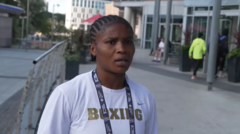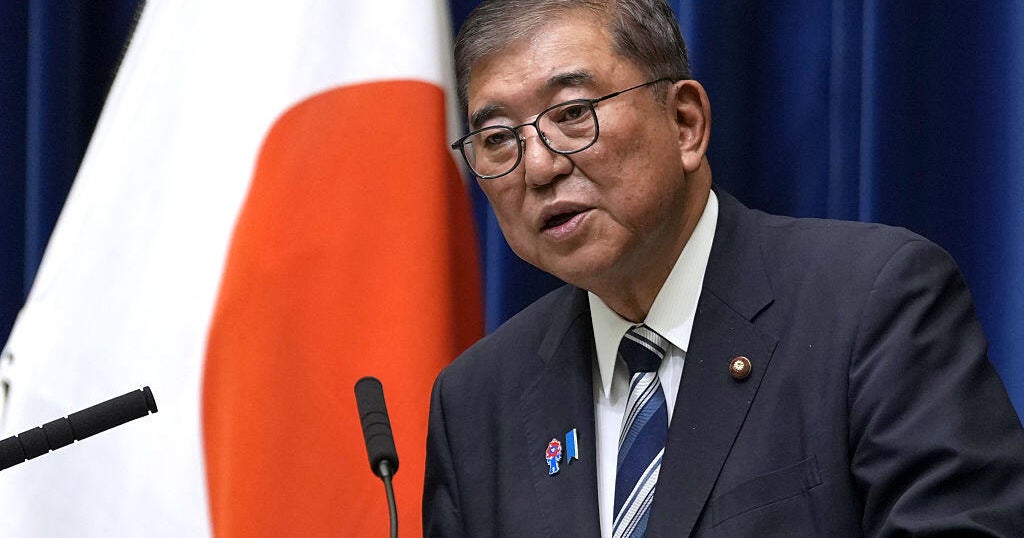Is Oraekwe Heartbroken Over Missing Worlds Due to Late Sex Tests?

Published: 2025-09-05 05:48:11 | Category: sport
At the inaugural Women’s World Boxing Championships held in Liverpool, 12 fighters were barred from competition, including Nigerian boxer Blessing Oraekwe, due to a missed deadline for mandatory genetic sex testing. This situation has sparked outrage and disappointment as athletes, who trained intensely, found themselves excluded from an event they had worked hard to participate in.
Last updated: 06 October 2023 (BST)
Overview of the Controversy
The controversy surrounding the World Boxing Championships highlights serious issues related to gender eligibility policies and the timing of communication from governing bodies. Blessing Oraekwe expressed her heartbreak over the situation, emphasising the emotional and financial toll on her and her teammates. Their exclusion raises questions about the management of sex testing protocols and the responsibilities of national federations.
- 12 fighters were barred from the Championships due to missed genetic sex testing deadlines.
- World Boxing introduced mandatory sex tests to ensure fairness and safety in women's competitions.
- Many athletes feel they were unfairly penalised due to bureaucratic failures.
- Compensation claims have been made by affected athletes for wasted travel costs.
- The French boxing federation also faced similar issues, adding to the controversy.
Understanding the Genetic Sex Testing Policy
World Boxing implemented a genetic sex testing policy aimed at ensuring fair competition among female athletes. This requirement, announced in May, mandates that all female competitors undergo testing to confirm their eligibility. The introduction of such policies stems from ongoing discussions about gender identity and equity in sports, particularly in combat sports like boxing.
Why Genetic Testing Matters
Genetic testing in sports is intended to create a level playing field. It aims to prevent unfair advantages that may arise from hormonal or physiological differences. World Boxing's stance is that ensuring safety and fairness takes precedence, even if it means stricter regulations for athletes.
The Timeline of Events
The timeline leading up to the Championships is crucial to understanding the current debacle:
- 21 August 2023: World Boxing communicated to national federations that all genetic testing results must be completed by 1 September.
- 1 September 2023: Deadline for results to be submitted to avoid disqualification.
- 2 September 2023: Nigerian team arrives in the UK and undergoes testing in Leeds.
- 5 September 2023: Testing results are received too late for Oraekwe and her teammates to compete.
Responses from Involved Parties
World Boxing has defended its policies, stating that national federations are best positioned to manage testing processes. They emphasised that their communications regarding the deadlines were clear. However, many athletes and federations have expressed frustration over the late implementation of such critical policies.
Statements from Blessing Oraekwe
Oraekwe articulated her disappointment, stating, "It was heartbreaking for me because my plan was to come here and dominate in the ring and take the gold for my country." She highlighted the financial burdens faced by her and her teammates, urging World Boxing to provide compensation for expenses incurred during their trip to the UK.
The French Boxing Federation's Perspective
The French boxing federation echoed similar sentiments, describing the exclusion of their athletes as a "profound injustice." They too had taken the necessary steps to comply with the testing requirements but were let down by the laboratory processing delays. Their statement reflected a collective sentiment of being caught in a bureaucratic trap.
The Bigger Picture: Gender Equality in Sports
The introduction of genetic sex testing in women’s sports is reflective of broader societal discussions around gender and equity. As more sports organisations implement policies to ensure fair competition, the balance between inclusivity and fairness continues to be a complex issue.
Historical Context of Gender Testing in Sports
Gender testing has been part of sports for decades, evolving alongside societal attitudes towards gender identity. Historically, tests were used to verify the sex of athletes, but the conversation has shifted to focus on the implications of such policies and their impact on athletes' careers and lives.
What Happens Next?
The future of the genetic sex testing policy in boxing remains uncertain. As more athletes and federations voice their concerns, it is likely that World Boxing will need to reassess its approaches. Continuous dialogue between governing bodies, athletes, and advocates for gender equity is essential to developing fair and transparent policies.
Calls for Reform and Support
Many athletes, including Oraekwe, are calling for reforms that address the timing and communication of such critical policies. The overarching need for clarity and support during these processes cannot be overstated, as athletes prepare for competitions often years in advance.
FAQs
What is genetic sex testing in sports?
Genetic sex testing in sports refers to the process of analysing an athlete's genetic makeup to determine their eligibility to compete in gender-specific categories. This is intended to ensure fairness and safety in competition.
Why did Blessing Oraekwe miss the competition?
Blessing Oraekwe missed the competition due to delays in receiving results from her mandatory genetic sex test, which were not processed in time for her to compete in the championships.
What has World Boxing said about the situation?
World Boxing has stated that national federations are responsible for managing testing processes and that they provided ample notice about the requirements and deadlines for genetic testing.
Are there any calls for compensation from the affected athletes?
Yes, Blessing Oraekwe and her teammates have called for compensation from World Boxing to cover their travel expenses, citing the emotional and financial toll of being barred from competition.
What is the broader impact of this controversy?
This controversy highlights ongoing tensions in sports regarding gender identity and the need for clear, fair policies that protect the rights of all athletes while ensuring competitive integrity.
The situation surrounding the Women’s World Boxing Championships serves as a reminder of the complexities involved in sports governance and the importance of timely communication. The resolution of this issue may set precedents for future policies within the realm of gender and sports. #Boxing #GenderEligibility #SportsPolicy



